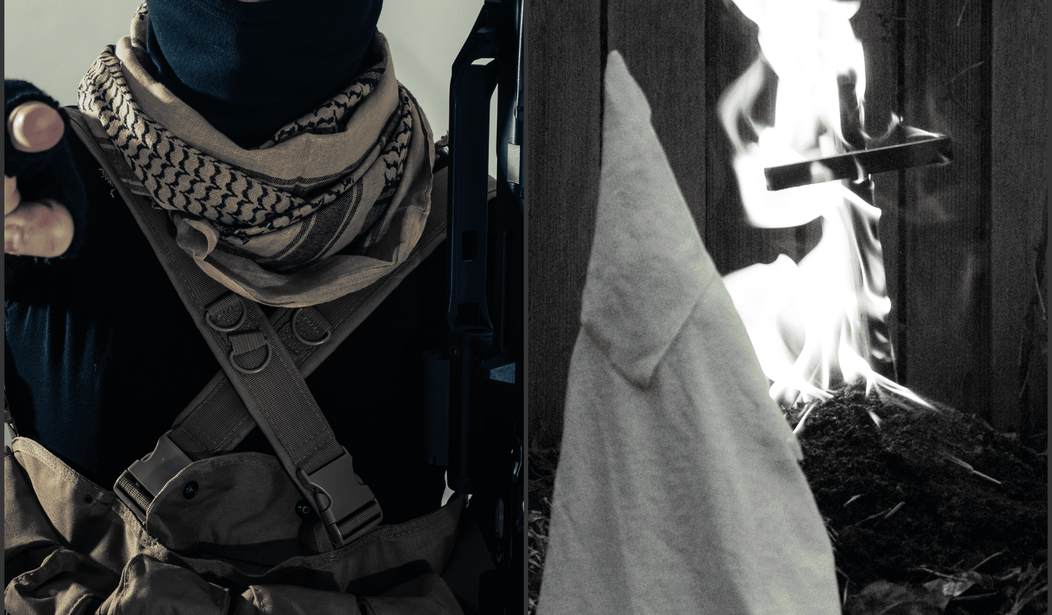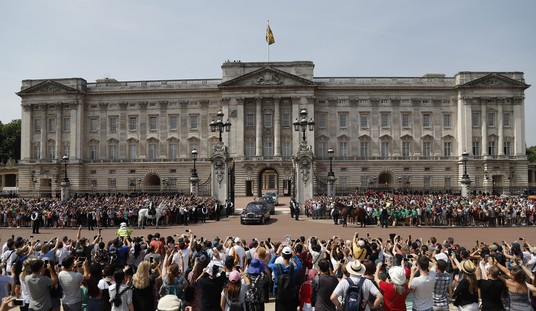In a Tuesday hearing on the use of terms like “Islam,” “Muslim,” and “jihad” in discussions on national security, Senate Democrats and expert witnesses argued that using the term “radical Islam” to describe groups like the Islamic State (ISIS) is just as insulting and factually incorrect as using the term “radical Christianity” to describe the Ku Klux Klan (KKK). Yes, they did it with straight faces.
“Radical Islam is no more accurate or appropriate a descriptor of the source of terrorist violence committed by Muslims than radical Christianity would be to describe the Ku Klux Klan, Army of God, or others,” Michael German, a fellow at the Brennan Center for Justice, testified at the “Willful Blindness” Senate Committee on the Judiciary hearing organized by Texas Senator Ted Cruz.
This argument was repeated by Farhana Khera, president and executive director of the National Association of Muslim Lawyers and of its sister group, Muslim Advocates. She attacked the description of ISIS or Al Qaeda “as a problem of jihad or a problem of radical Islamic terrorism” as “grossly inaccurate.”
Khera added that “it’s no different than the KKK or those who attack abortion clinics. We wouldn’t say there is a problem with radical Christianity or radical Christian terrorism. We call the threat what it is. It’s the KKK, those who are attacking women’s health clinics.”
Illinois Senator Dick Durbin pointed out that the Klan’s symbol is “a flaming cross,” and added that “they believe somehow they were espousing the teachings of Jesus Christ.” He then went on to discuss the Westboro Baptist Church, which “sends demonstrators to the funerals of our fallen soldiers and puts up these hateful signs that say this soldier died because of sodomy, because of gay marriage.”
“Their homophobia, they believe, is part of their Christian belief,” Durbin added. “I think the point that has been made over and over by three members of this panel is it is a mistake for us to then call the Ku Klux Klan radical Christians or Westboro Baptists radical Christians. They are extreme, violent, unacceptable. It reflects on all of us who count ourselves as Christians if you use a term so broad in its application.”
Next Page: Why the KKK-ISIS comparison doesn’t work.
Despite the hateful things the Westboro Baptist Church has done, it has never engaged in terrorist activities, much less the kind of mass slaughter of Christians, homosexuals, and other groups that ISIS has committed.
The KKK is a closer comparison, but the Bible does not call for racism, unless you consider one early passage about the figure Ham as able to contradict St. Paul’s clear declaration in Galatians 3:28 that “There is neither Jew nor Greek, slave nor free, male nor female, for you are all one in Christ Jesus.” The Klan may identify itself as Christian, but its motivating ideology is racism, not theocracy or political Christianity.
Indeed, a Christian theocracy is almost a contradiction in terms, given Jesus’ historically fascinating separation of religious beliefs and state power (Matthew 22:21, Mark 12:17).
Interpretations of Islam and the Quran also differ, but even one of the Muslims on the panel agreed that it is a radical, politicized form of Islam which propels these groups, not an ideology entirely separate from the faith he holds dear. The suppression of the term “radical Islamic terror” actually hurts Muslims, he argued, by shutting down the debate about theocratic forms of his faith.
“Our American Islamic Forum for Democracy was founded by the premise that terrorism, ISIS, Al Qaeda, are symptoms of theocratic beliefs,” declared M. Zuhdi Jasser, founder and president of the American Islamic Forum for Democracy. “We formed our organization to counter political Islam and separate mosque and state just as the Founding Fathers fought against theocracy.”
Jasser added that “the refusal to identify political Islam as the root cause and the conveyor belt that creates radical Islam is the greatest obstacle to reforming the ideas that churn out these militants.”
Next Page: What the liberal expert who says we shouldn’t use “radical Islam” actually gets right.
That said, the experts did have a few good points. German, who has investigated white supremacist groups under cover in the past, argued that the focus on radical Islamic terrorism has “disproportionately and indiscriminately targeted American Muslim communities with surveillance and infiltration, often to the exclusion of other violent threats.”
He pointed to a 2011 triple homicide in Waltham, Mass., which involved Tamerlan Anzorovich Tsarnaev. If that crime had been investigated and the criminal imprisoned, he “would not have been free to mastermind the 2013 Boston Marathon Bombing.”
German rightly insisted that “ideas cannot be killed and ideologies cannot be destroyed,” recalling that “we defeated Nazi extremism in World War II, but my undercover work against neo-Nazis in the 1990s and the political assassination in Britain this month show fascism was not defeated.”
Despite Jasser’s insistence on a debate about theocracy, German insisted that “we respond appropriately to this threat by criminalizing the violent behavior, not by attempting to destroy an ideology.”
While German may be wrong to insist on removing references to “radical Islamic terror” from national security documents, his call for a more effective law enforcement which focuses on individual threats is admirable. Nevertheless, we should not overlook the terror-supporting networks that intelligence has unearthed.
Jasser called for patriotic Muslims to stand up and encourage a version of Islam that does not advocate for theocracy. Rather than beating up on Christians for somehow being linked to the KKK, Democrats should embrace this ideological response to radical Islamic terror, urging reform within Islam, in addition to vigorous law enforcement efforts to keep America safe.









Join the conversation as a VIP Member